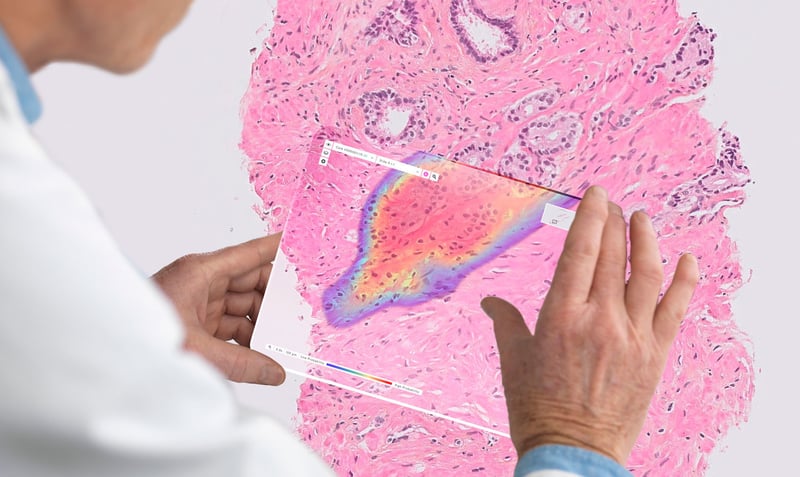While most artificial intelligence-powered tools for cancer detection do so by automatically reading radiological scans, Ibex Medical Analytics, much like its gravity-defying namesake, is leaping into the pathology lab.
Ibex’s technology uses machine learning and deep learning to analyze biopsies, with the ability not only to identify and distinguish different forms of cancer, but also to grade its severity. Its Galen platform can also note when the AI’s diagnosis differs from that of a pathologist, creating a built-in safety net.
The Galen Breast solution, which, as the name implies, is used to spot and characterize breast cancer, has now received CE mark certification, making it available to pathologists throughout Europe.
The tool was trained on hundreds of thousands of digitized breast biopsy slides and, according to Ibex, is the first AI used to detect breast cancer in pathology.
The EU clearance comes shortly after the completion of a clinical study proving Galen Breast could detect various forms of breast cancer at a level of accuracy on par with highly trained pathologists.
In the study, the technology identified both invasive and in-situ cancers in breast biopsies, determined the type of each cancer—for example, whether a lobular or ductal carcinoma—and graded the severity level of ductal carcinoma in situ, or DCIS, lesions.
“We are impressed with the successful study outcomes and performance of Galen Breast, which were in near-perfect concordance with the consensus diagnosis between pathologists in distinguishing between malignant and benign biopsies, and between invasive and in-situ carcinoma and other histological types,” Anne Vincent-Salomon, principal investigator in the study, said in a release.
“Our team demonstrated that Ibex’s AI technology goes beyond detecting cancer and provides accurate insights on the type of tumor, the nuclear grading of in situ carcinomas and more,” Vincent-Salomon added.
Ibex’s technology has previously won regulatory clearance for its use in detecting prostate cancer. Galen Prostate—built around an algorithm trained on more than 60,000 digitized pathology slides—nabbed its own CE mark in February 2020, allowing pathologists across Europe to use the solution to identify cancer in core needle biopsies.
Since then, the Israel-based company has raised $38 million to continue developing its AI-powered tools to identify even more types of cancer. The series B round, which closed in March of this year, was led by Octopus Ventures and 83North, with other backers including aMoon, Planven Entrepreneur Ventures and Dell’s corporate VC arm.

